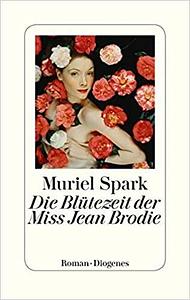You need to sign in or sign up before continuing.
Take a photo of a barcode or cover
challenging
funny
reflective
medium-paced
Plot or Character Driven:
Character
Strong character development:
Yes
Loveable characters:
Complicated
Diverse cast of characters:
No
Flaws of characters a main focus:
Yes
dark
emotional
funny
inspiring
mysterious
reflective
sad
slow-paced
Plot or Character Driven:
Character
Strong character development:
Complicated
Loveable characters:
No
Diverse cast of characters:
No
Flaws of characters a main focus:
Yes
funny
reflective
sad
medium-paced
Plot or Character Driven:
Character
Strong character development:
Yes
Loveable characters:
Complicated
Diverse cast of characters:
No
Flaws of characters a main focus:
Yes
First time I've read this. I feel like this book was pushed at me for many years when I was younger, maybe on lists of great novels by women. I'm very glad I never read it then, because I think before the age of 30 or so, I wouldn't have liked it much.
Now the main thing I didn't like is the repeated descriptions of Sandy, one of the several schoolgirls in Miss Brodie's "set," as having piggy little eyes, or very small eyes like a pig's. This seems to indicate that she is ugly, and ugly girls can't be trusted. What's up with that?!
The pinning of one key characteristic to each of the "special" girls — one is great at math; one is great at sports; one is "famous for sex"; one is stupid — is also a downer. These repeated views might belong to Miss Brodie, or perhaps to Sandy, but since the narrator is omniscient we might assume this is the way the author views women generally, and I didn't like it.
Anyway, the idea of an immensely influential teacher in one's early years (ages 10–11), coupled with the setting of a girls-only day school in 1930s Edinburgh, and how her manipulations affected not only the girls but also a couple of male teachers at the school, held my attention and made me think a lot about the era, between the World Wars, when an educated single woman in Britain had few choices for male companions and yet could live her own life (if, like Miss Brodie, she had the financial means) on her own terms. It's lovely that she took them to museums and concerts and dance performances and showed them great art and talked about her summer travels to places such as Rome. It's sad that she wanted to mold them like formless clay, though, when they could have more suitably molded themselves.
The oft-repeated observation that Miss Brodie is "in her prime" — voiced by her and by everyone else in the book — was very funny.
It was neat to encounter Edinburgh landmarks (occasionally) in the story, as I recognized all of them from a 2019 visit there.
.
Now the main thing I didn't like is the repeated descriptions of Sandy, one of the several schoolgirls in Miss Brodie's "set," as having piggy little eyes, or very small eyes like a pig's. This seems to indicate that she is ugly, and ugly girls can't be trusted. What's up with that?!
The pinning of one key characteristic to each of the "special" girls — one is great at math; one is great at sports; one is "famous for sex"; one is stupid — is also a downer. These repeated views might belong to Miss Brodie, or perhaps to Sandy, but since the narrator is omniscient we might assume this is the way the author views women generally, and I didn't like it.
Anyway, the idea of an immensely influential teacher in one's early years (ages 10–11), coupled with the setting of a girls-only day school in 1930s Edinburgh, and how her manipulations affected not only the girls but also a couple of male teachers at the school, held my attention and made me think a lot about the era, between the World Wars, when an educated single woman in Britain had few choices for male companions and yet could live her own life (if, like Miss Brodie, she had the financial means) on her own terms. It's lovely that she took them to museums and concerts and dance performances and showed them great art and talked about her summer travels to places such as Rome. It's sad that she wanted to mold them like formless clay, though, when they could have more suitably molded themselves.
The oft-repeated observation that Miss Brodie is "in her prime" — voiced by her and by everyone else in the book — was very funny.
It was neat to encounter Edinburgh landmarks (occasionally) in the story, as I recognized all of them from a 2019 visit there.
.
funny
mysterious
medium-paced
Plot or Character Driven:
Character
Strong character development:
Complicated
Loveable characters:
Complicated
Diverse cast of characters:
Yes
Flaws of characters a main focus:
Yes
This was found to be a savage novel of joyous innocence and taciturn bile. It is remarkable and completely bereft of flaws in its dazzling passage.
dark
funny
reflective
sad
slow-paced
Plot or Character Driven:
Character
Strong character development:
Yes
Loveable characters:
Complicated
Diverse cast of characters:
No
Flaws of characters a main focus:
Yes
Apart from Spark's magnificent portrayal of the psychological development in each of the girls of the Brodie set, what I found truly admirable in the narrative was the astute revelation of who the real protagonist is and the underlying causes of this rather ironic turn of events.


